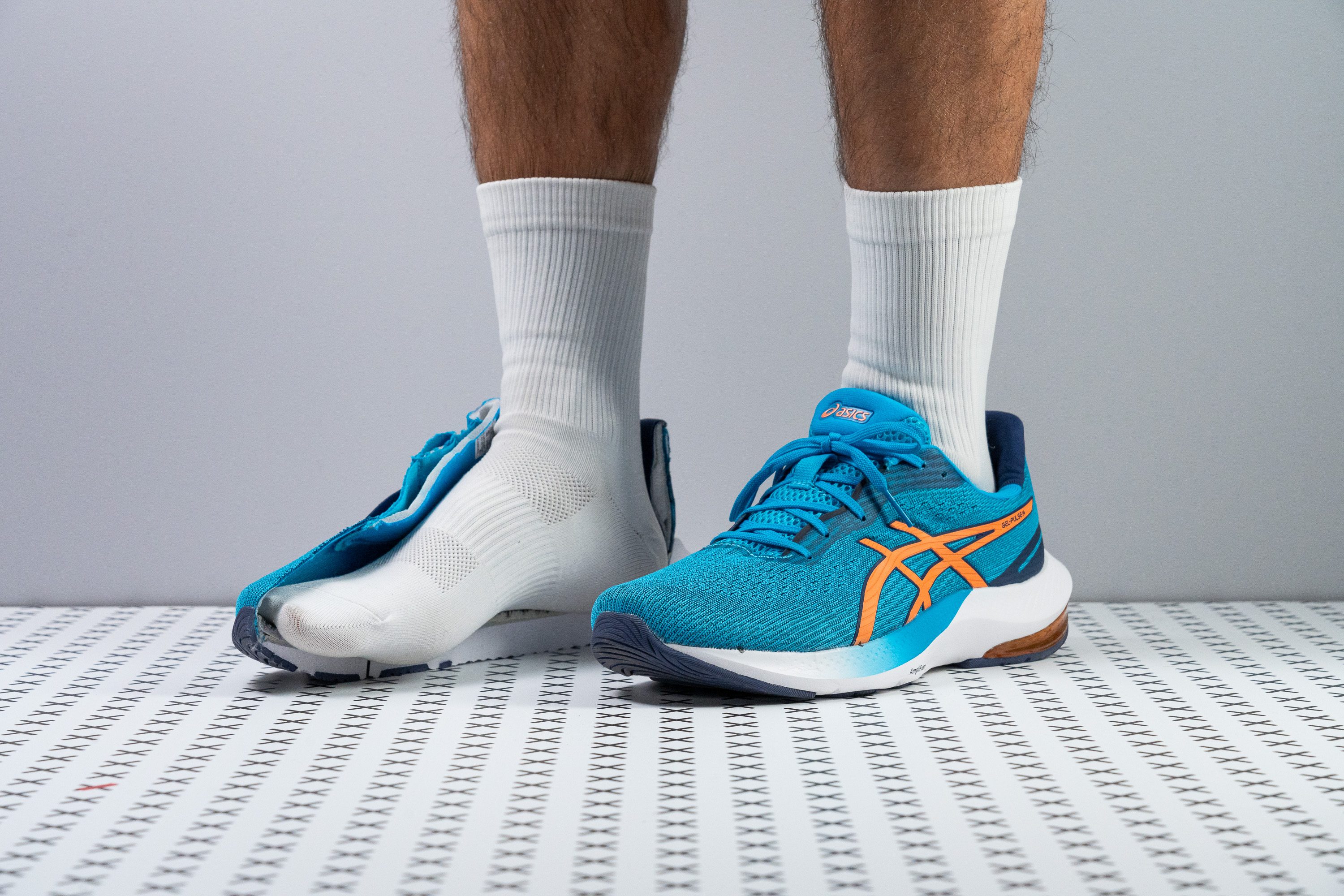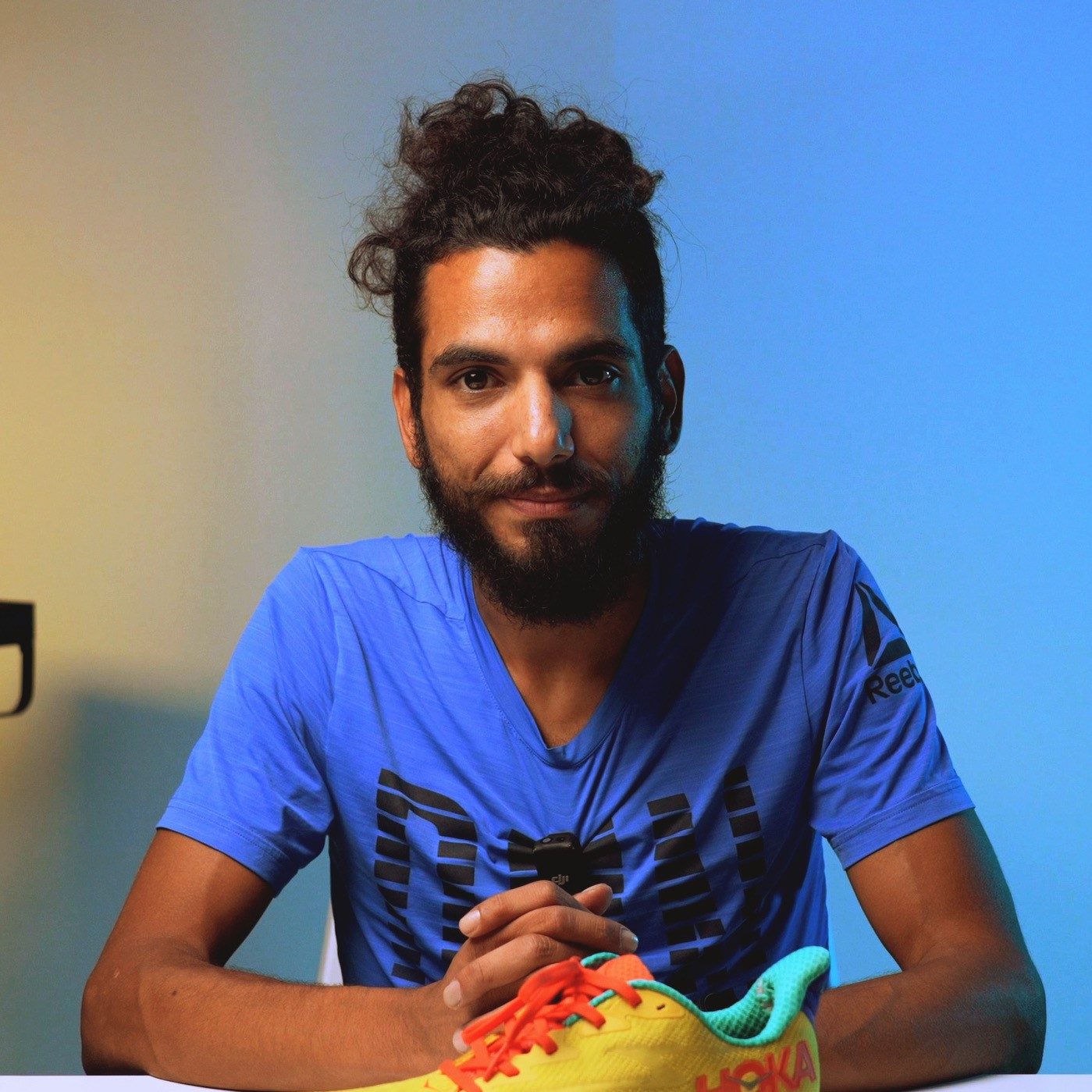Our verdict
- Top pick in best ASICS walking shoes (2024)
Pros
- Well-cushioned and comfortable
- Generously padded interior
- Great for easy runs and recovery days
- Flexible and forgiving on the foot
- Reliable traction
- Secure lockdown
- Accommodating toebox
- Feels decently stable
- Good for cold winter runs
- Works well as a gym/walking shoe
- Lots of colorway options
Cons
- Average breathability at best
- Could be lighter
- Not ideal for forefoot strikers
- Midsole lacks responsiveness
Audience verdict
Comparison
The most similar running shoes compared
+ + Add a shoe | |||||
|---|---|---|---|---|---|
| Audience score | 80 Good! | 77 Decent! | 83 Good! | 79 Good! | |
| Price | $100 | $75 | $100 | $70 | |
| Pace | Daily running | Daily running | Daily running | Daily running | |
| Shock absorption | - | Moderate | Moderate | Moderate | |
| Energy return | - | Low | Low | Low | |
| Traction | - | Moderate | High | Moderate | |
| Arch support | Neutral | Neutral | Neutral | Neutral | |
| Weight lab Weight brand | 10.4 oz / 296g 10.5 oz / 298g | 9.3 oz / 265g 9.4 oz / 267g | 8.5 oz / 241g 8.5 oz / 240g | 9.7 oz / 275g 9.7 oz / 275g | |
| Lightweight | ✗ | ✗ | ✓ | ✗ | |
| Drop lab Drop brand | 9.7 mm 10.0 mm | 10.1 mm 10.0 mm | 10.2 mm 8.0 mm | 7.8 mm 8.0 mm | |
| Strike pattern | HeelMid/forefoot | Heel | Heel | Mid/forefoot | |
| Size | True to size | Slightly small | - | True to size | |
| Midsole softness | Balanced | Balanced | Balanced | Balanced | |
| Difference in midsole softness in cold | Small | Small | Small | Small | |
| Toebox durability | Bad | Decent | Decent | Bad | |
| Heel padding durability | Good | Good | Decent | Good | |
| Outsole durability | Good | Good | Good | Decent | |
| Breathability | Moderate | Moderate | Warm | Moderate | |
| Width / fit | Medium | Medium | Medium | Medium | |
| Toebox width | Medium | Medium | Narrow | Medium | |
| Stiffness | Moderate | Moderate | Stiff | Moderate | |
| Torsional rigidity | Moderate | Moderate | Stiff | Moderate | |
| Heel counter stiffness | Stiff | Moderate | Stiff | Stiff | |
| Rocker | ✗ | ✗ | ✓ | ✗ | |
| Heel lab Heel brand | 32.0 mm | 32.2 mm 32.0 mm | 36.5 mm 36.0 mm | 31.2 mm 31.0 mm | |
| Forefoot lab Forefoot brand | 22.3 mm | 22.1 mm 22.0 mm | 26.3 mm 28.0 mm | 23.4 mm 23.0 mm | |
| Widths available | Normal | NarrowNormalWideX-Wide | Normal | NormalWideX-Wide | |
| Orthotic friendly | ✓ | ✓ | ✓ | ✓ | |
| Season | All seasons | All seasons | All seasons | All seasons | |
| Removable insole | ✓ | ✓ | ✓ | ✓ | |
| Ranking | #599 Bottom 12% | #352 Bottom 8% | #268 Bottom 30% | #340 Bottom 11% | |
| Popularity | #641 Bottom 6% | #57 Top 15% | #155 Top 41% | #70 Top 19% |
Who should buy
We recommend the Gel Pulse 14 as an excellent choice for:
- Those in the market for a comfy road shoe for easy runs of short to moderate distances
- Heel-striking runners with a neutral stride looking for a well-cushioned daily trainer
- People in colder climates who need a warm shoe that performs consistently year-round
- Casual runners who want a general fitness shoe that won't break the bank
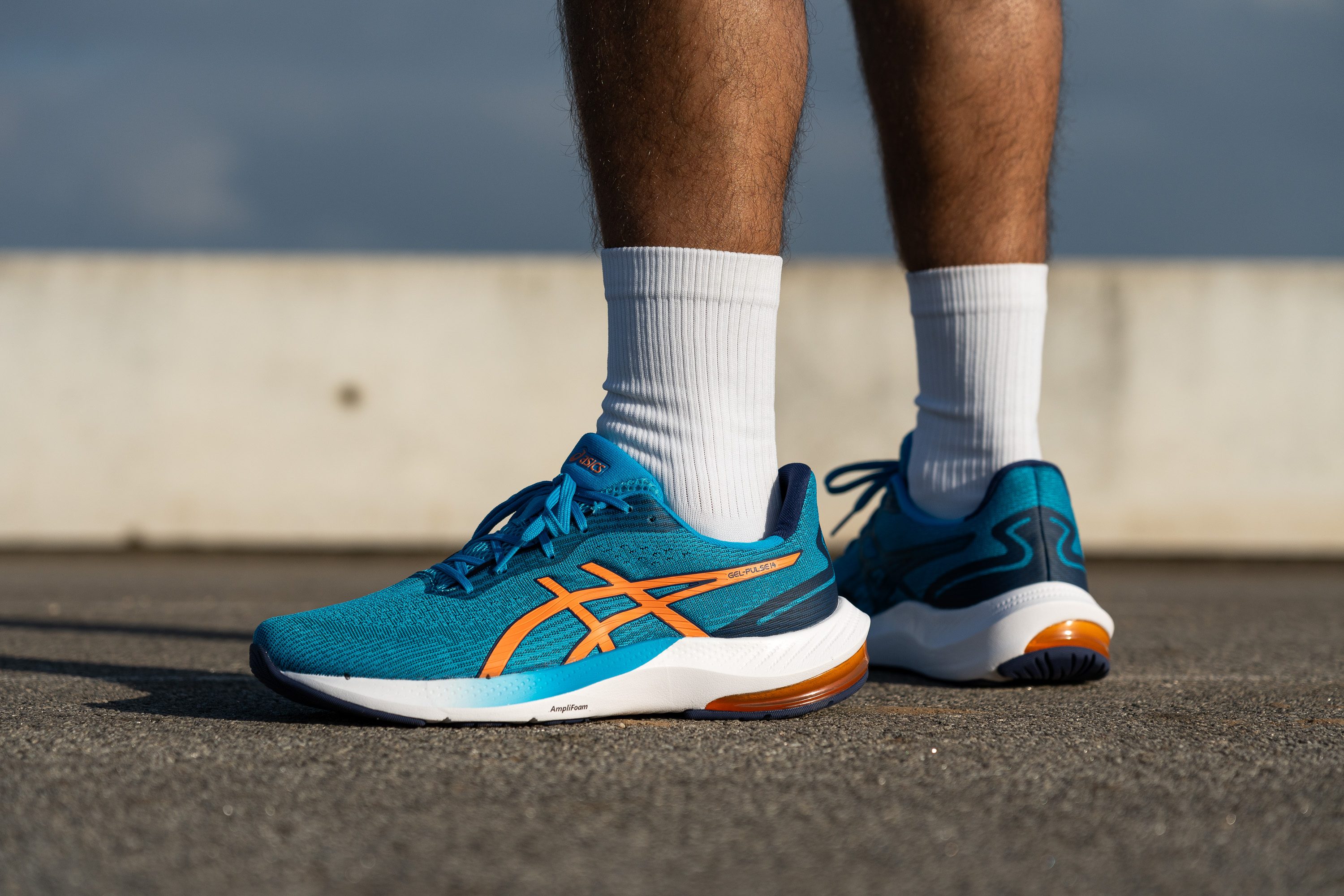
Who should NOT buy
With its relatively high drop and lack of cushioning at the forefoot, the Gel Pulse 14 is more conducive to heel striking. The Adidas Adizero SL is a fairly priced alternative that better suits a forefoot striking stride.
While Gel Pulse 14's AMPLIFOAM midsole feels comfy enough for easier, low-intensity runs, it lacks the responsiveness needed to support speedier sessions. Runners looking for a better tempo trainer should consider upping their budget and looking at an alternative like the ASICS Novablast 4.
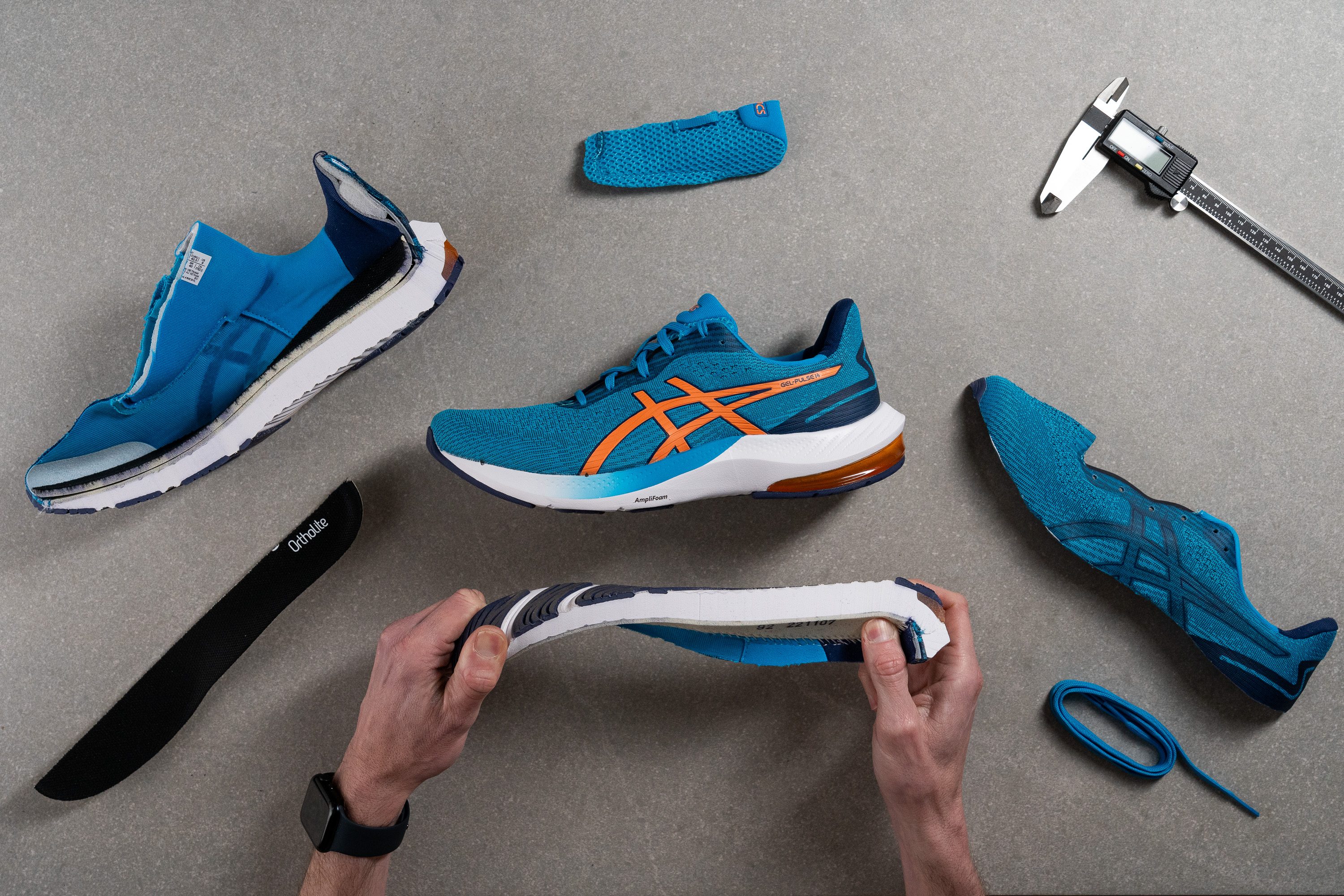
We also found the shoe's cushioning a little lacking when it comes to long-distance running. The Brooks Launch 10 and the Saucony Axon 3 are true mile gobblers that kept us going as long as we had gas in the tank.
While the gel insert at the heel does help with stable landings, the Gel Pulse 14 isn't supportive enough for overpronators who should look into a stability shoe like the ASICS GT 1000 12 to avoid injury over time.
Cushioning
Heel stack
At 32 mm thick according to our caliper measurements, the Gel Pulse 14's heel stack falls in line with our current lab average. This amount of foam underfoot is enough to keep our heels feeling well-protected and allows us to sink into and savor the midsole cushioning.
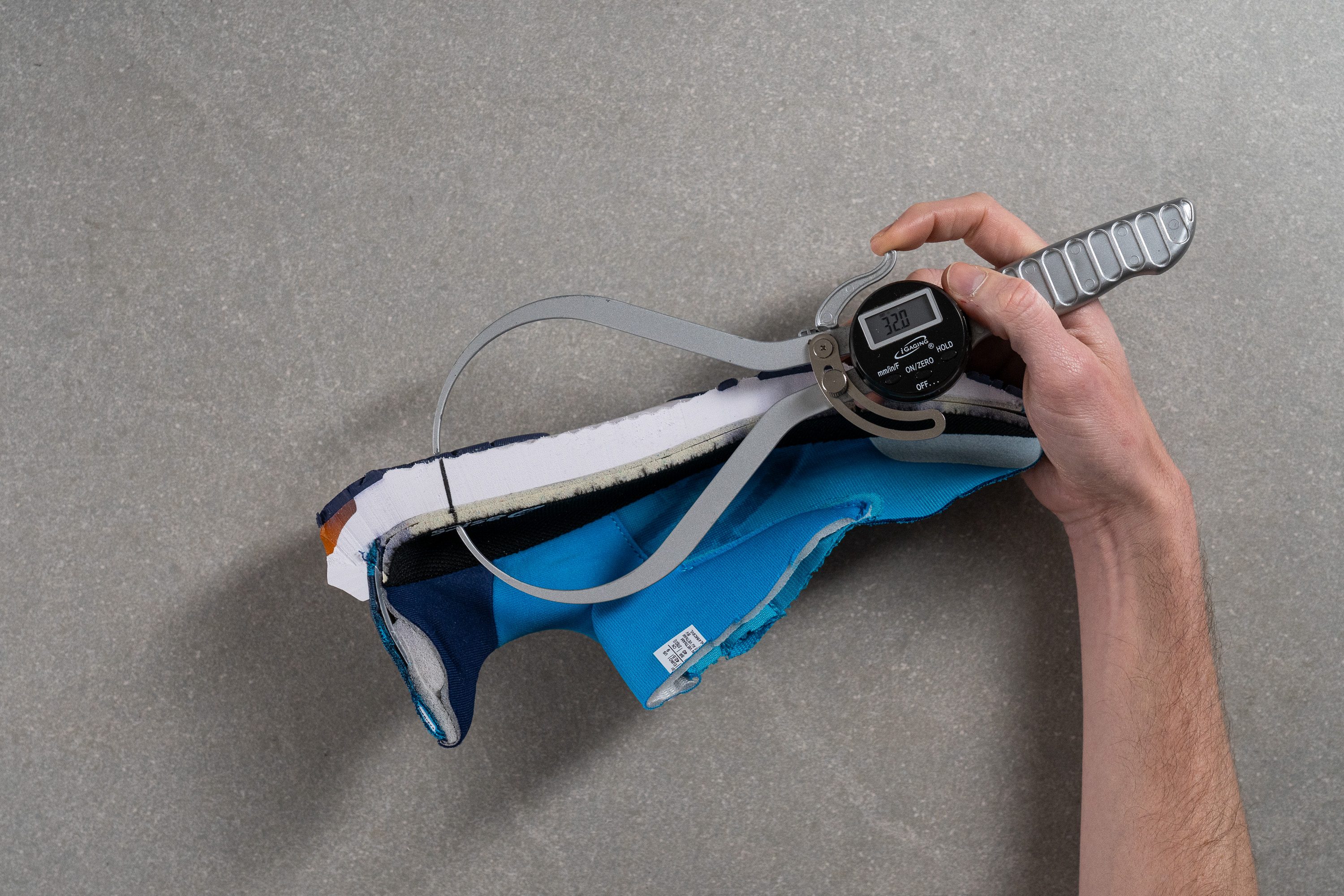
The Gel Pulse 14 also features a little gel insert at the lateral side of the heel which is a little firmer than the midsole foam. This means that our initial contact with the ground when heel-striking doesn't feel very squishy, giving our landings a well-baffled and stable sensation.
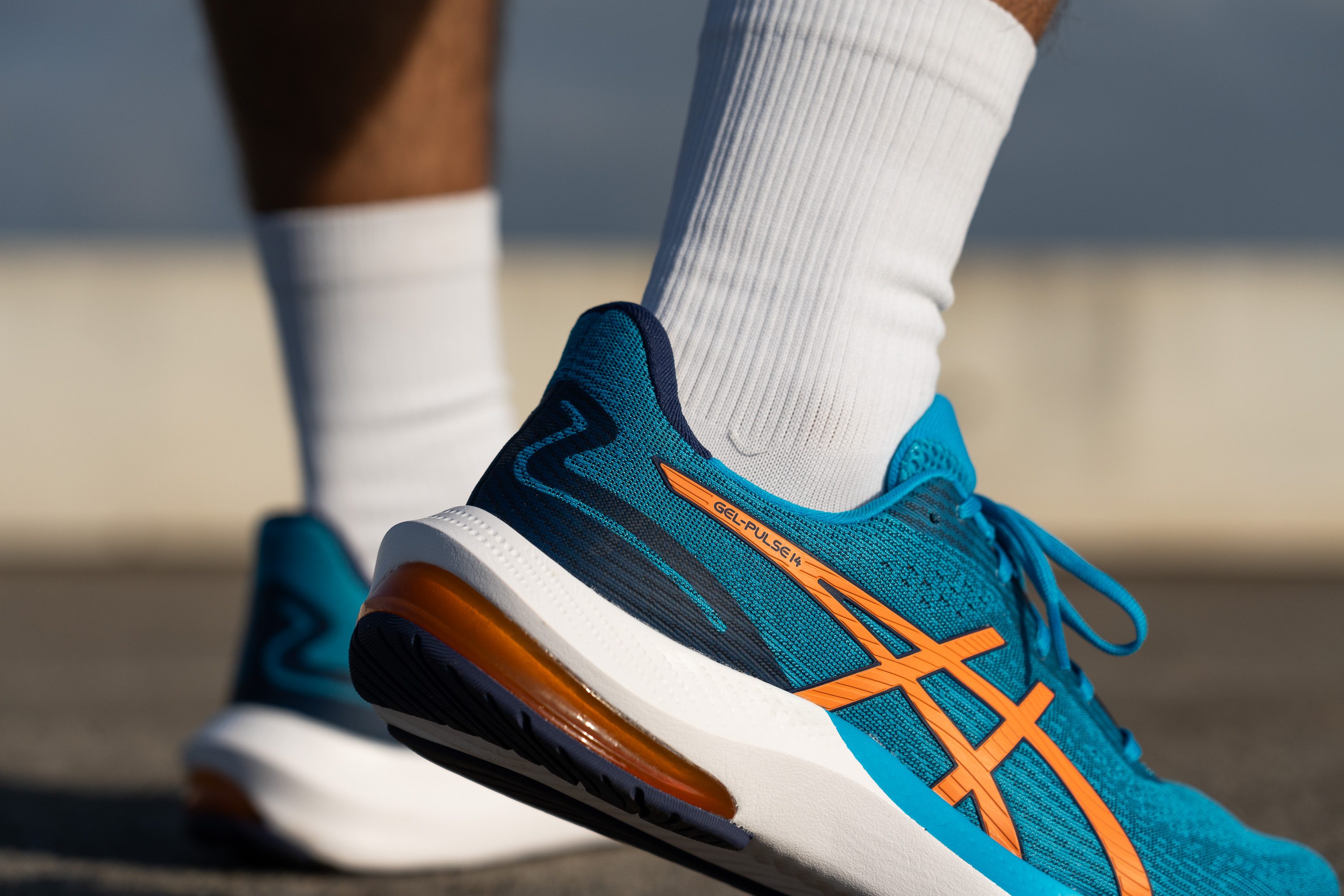
| Gel Pulse 14 | 32.0 mm |
| Average | 34.8 mm |
Forefoot stack
We measured the Gel Pulse 14's stack to be 22.3 mm thick at the forefoot which is just a little shy of our current lab average. This is also enough foam underfoot to protect our foot from impact while still allowing for a good amount of ground feel as we tested the shoe.
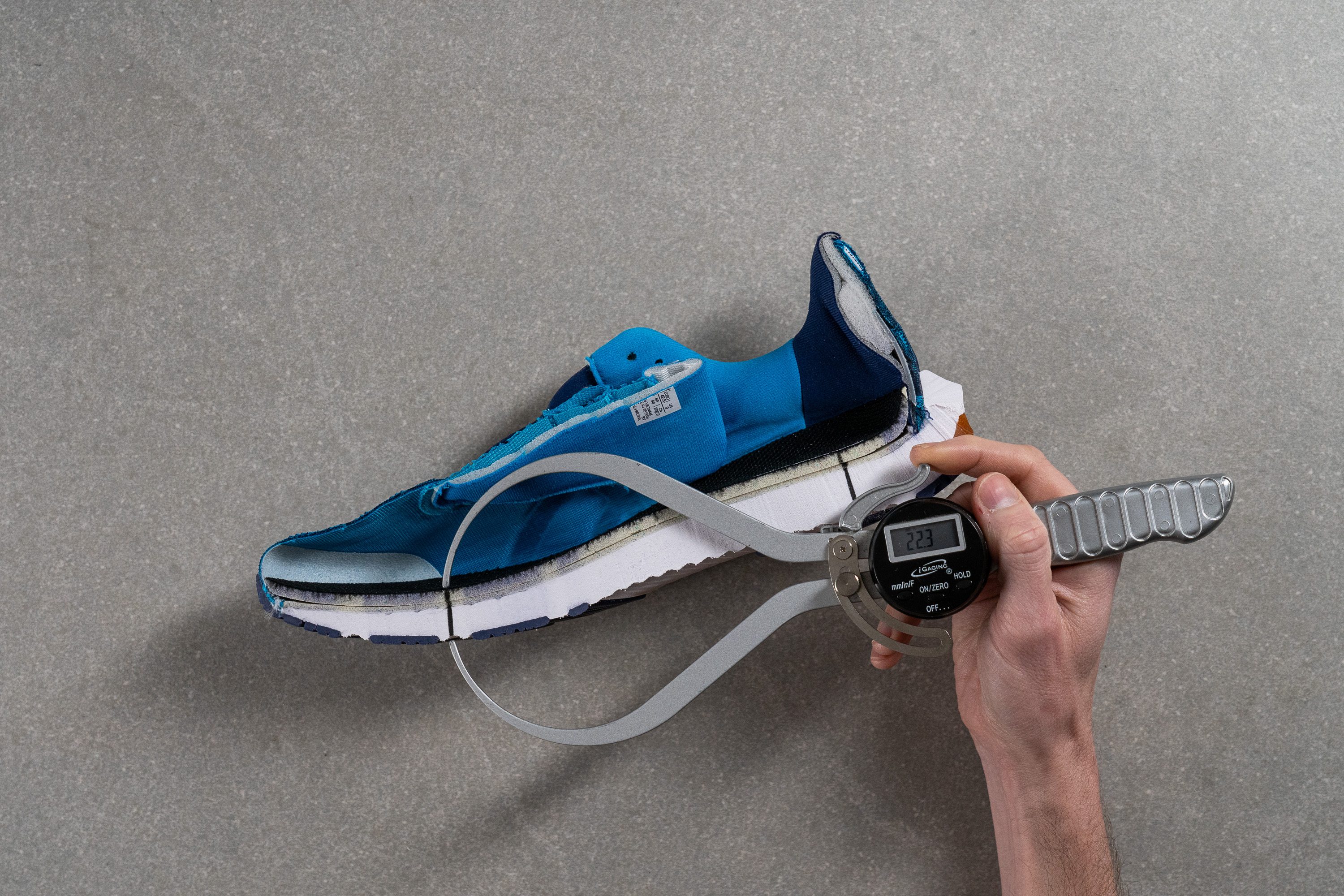
Forefoot striking runners who prefer having more foam at the forefoot for better-cushioned landings, especially for long-distance efforts, we recommend looking into the Saucony Axon 3 as a similarly priced alternative.
| Gel Pulse 14 | 22.3 mm |
| Average | 26.2 mm |
Drop
ASICS rarely lets us down with their accurate heel drop measurements as, according to our stack measurements, the Gel Pulse 14 only deviates 0.3 mm away from the official figure of 10 mm. Seriously, take a look at this article that explores all the inaccuracies we've found in the lab with brand-stated drop heights.
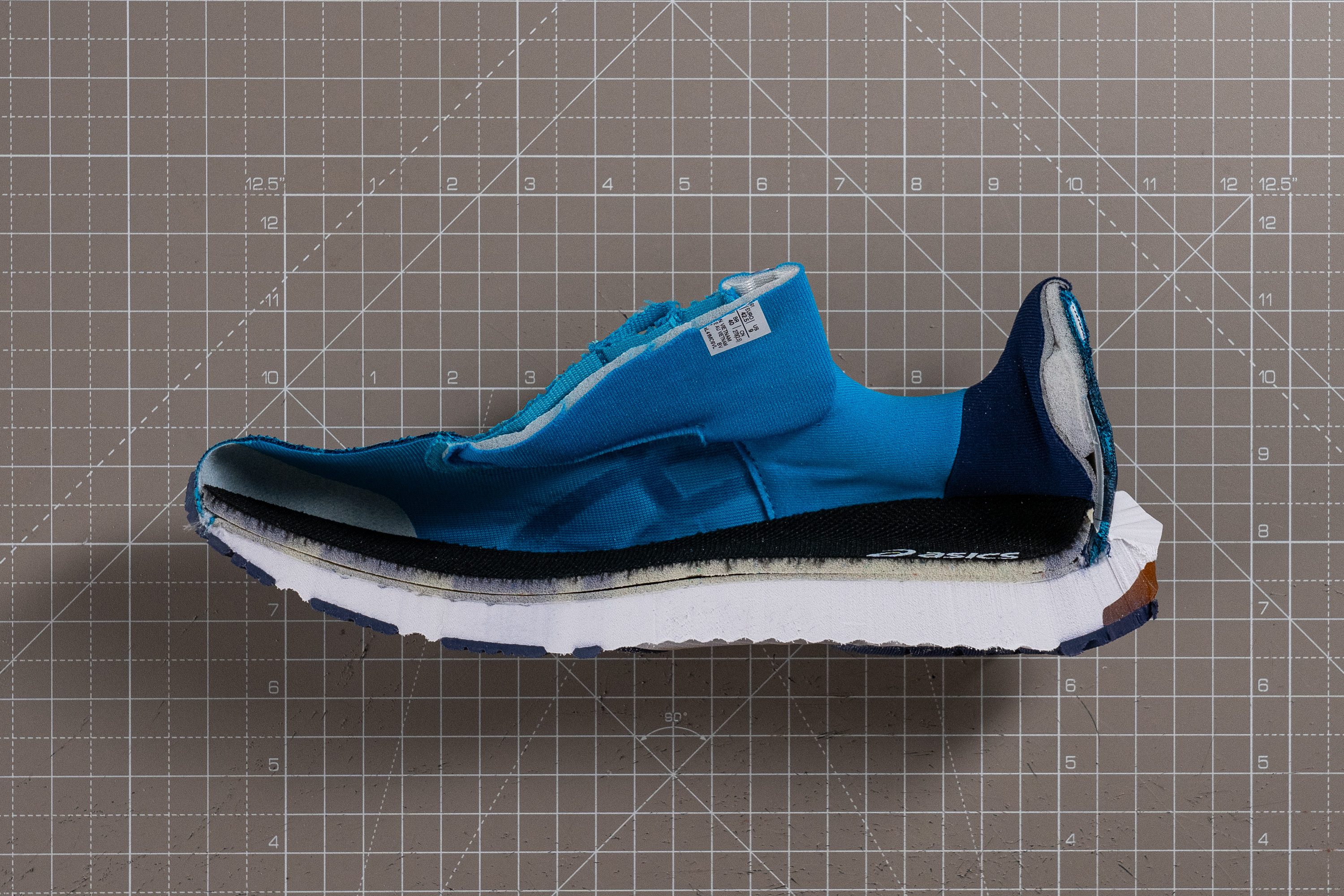
A drop of 9.7 mm puts the Gel Pulse 14 in the category of high-drop shoes which generally work better for heel-striking runners and those with lower leg injuries or issues. Forefoot strikers looking for a shoe that better suits their stride should look into the mid/low drop Saucony Kinvara 14 instead.
For those looking to learn more about the pros and cons of different drop heights, we have another article that sheds light on the matter.
| Gel Pulse 14 | 9.7 mm |
| Average | 8.6 mm |
Midsole softness
We pressed our durometer against the Gel Pulse 14's AMPLIFOAM midsole and got a reading of 22.5 HA. This is about as soft as our current lab average and gives our landings a soft and protective touch that feels great for low-intensity runs.
It wouldn't be fair to describe the Gel Pulse 14's midsole as dull; however, we found that it certainly lacks the snappiness or energy return to be an efficient tempo trainer. It's geared more towards comfort than performance. The shoe's speedy cousin, the ASICS Novablast 4 utilizes the brand's more reactive (and more premium) FF Blast+ ECO foam that is much more conducive to high-paced running.
While the aforementioned gel insert at the heel feels firmer underfoot during rearfoot landings, there's a subtle yet satisfying squish as our weight shifts to the foam at the forefoot. This feature will help promote more stable landings for heel strikers, though it doesn't do much to mitigate overpronation as we'll explore later.
| Gel Pulse 14 | 22.5 HA |
| Average | 20.4 HA |
Size and fit
Size
ASICS Gel Pulse 14 fits true to size (16 votes).
Internal length
| Gel Pulse 14 | 273.5 mm |
| Average | 269.4 mm |
Flexibility / Stiffness
After securing the shoe to our workbench, we used our force gauge to find that 16.6N of force is needed to bend the shoe 90 degrees. This makes the Gel Pulse 14 much more flexible than the average road shoe and means that it is able to conform with the natural flexion of our foot with relative ease. This is excellent for a daily trainer, especially one that's more comfort-oriented, as it feels incredibly forgiving on our foot as we test the shoe.
This test follows an older methodology, which is why you don't see recently tested shoes in the chart. Results from different methodologies can not be compared.
| Gel Pulse 14 | 16.6N |
| Average | 28.1N |
Stiffness in cold (%)
As with the midsole, we repeated our flex test after leaving the shoe to chill in our freezer for twenty minutes. We were similarly impressed by the shoe's performance in this test as it only became 11.4% stiffer, making it much more consistent than average in terms of flexibility too. In fact, with only 18.5N needed to bend the cold shoe, the Gel Pulse 14 is still more flexible than the average road shoe at room temperature. As such the shoe will feel just as comfy and forgiving on the foot as the mercury drops in the winter.
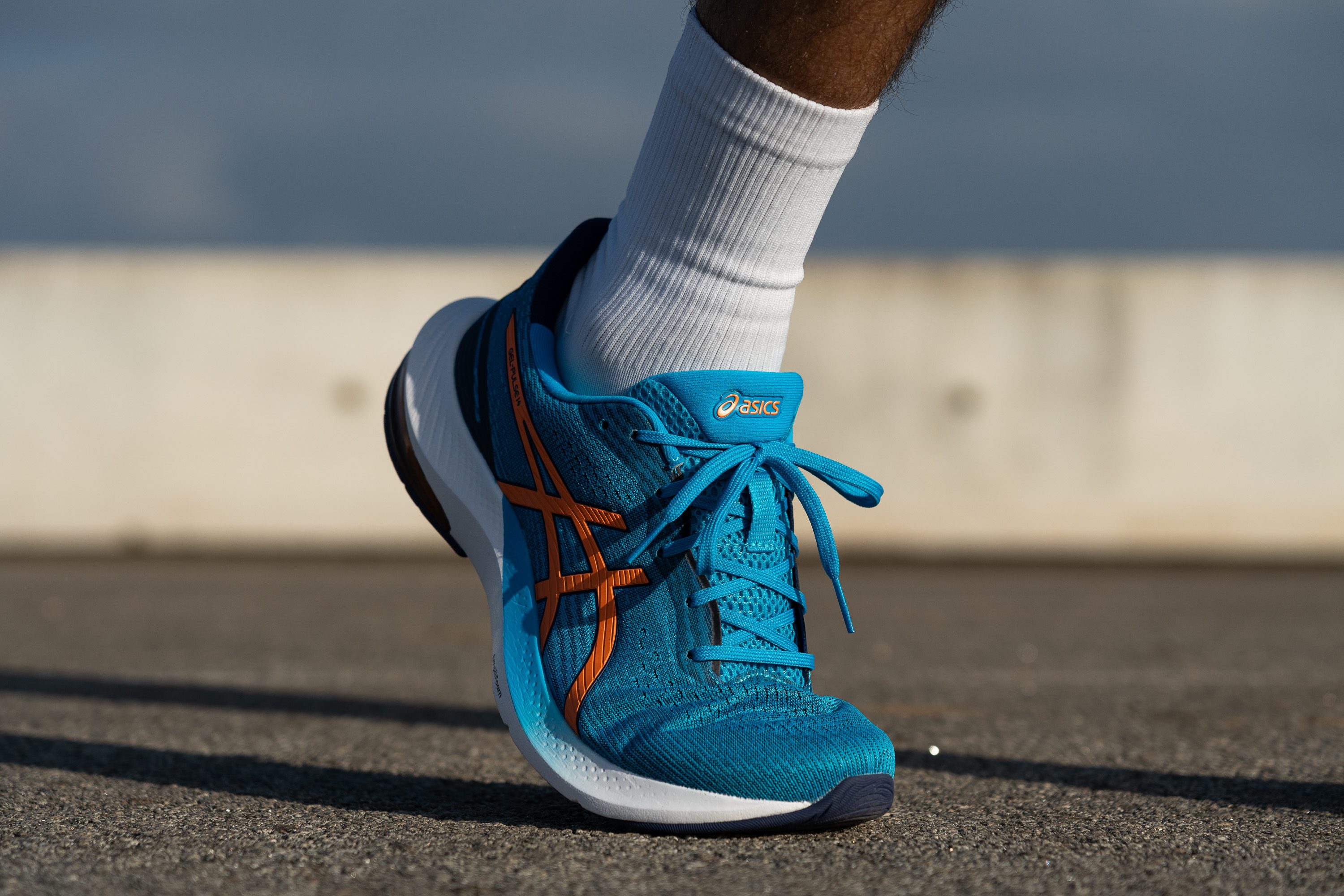
| Gel Pulse 14 | 11% |
| Average | 33% |
Weight
Which brings us to the weigh-in. The Gel Pulse 14 tips our scale at a heavier-than-average 10.4 oz (296g). However, this isn't unreasonably heavy for a daily trainer and we were able to get through our low-intensity sessions quite comfortably. It does, among other factors, make the shoe a less-than-ideal choice for speedy sessions or long distances.
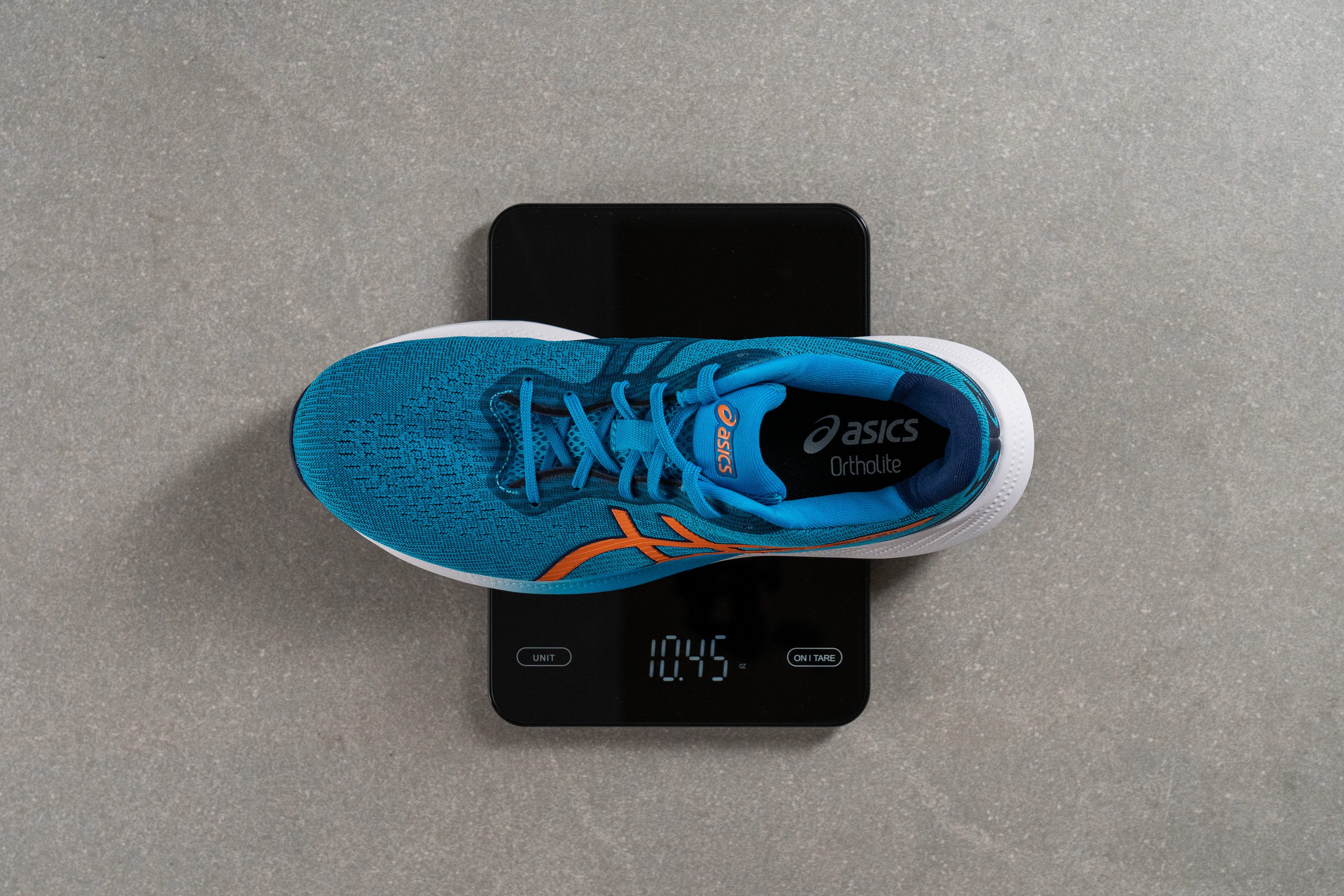
This chunky disposition is, no doubt thanks to the beefy outsole as well as the generously padded interior. The ASICS Gel Excite 10 is a similarly priced shoe that's also comfy but about 1 oz lighter, while the much more expensive ASICS Superblast weighs in under 9 oz despite a much beefier stack.
| Gel Pulse 14 | 10.4 oz (296g) |
| Average | 9.3 oz (264g) |
Breathability
To test the breathability of the Gel Pulse 14, we pumped it full of smoke to see how easily it escapes the upper. After quite a while of smoke only filtering through the tongue somewhat steadily, it eventually filters through the rest of the upper in a slow, pathetic haze. This leads us to give the Gel Pulse 14 a so-so score of 3 out of 5. This level of ventilation is adequate for cooler days or evenings and helps the shoe avoid developing a musty odor after some runs. That said, it will still feel quite stuffy during hot summer days.
While light is able to peek through the little perforations that dot the Gel Pulse 14's upper, the shoe's cross-section blocks out most of our backlight. This certainly helps to illuminate the shoe's lackluster breathability but we turn to our microscope for a closer look.
As we can see from our closeup image of the jacquard mesh, the dense network of feather-like braids doesn't have many gaps to promote airflow. Even the "perforated" areas only open up to a slightly less dense inner layer of mesh. This explains the smoke's delayed ability to escape in our previous test. For a better warm-weather companion, we recommend checking out the ASICS Jolt 4 instead.
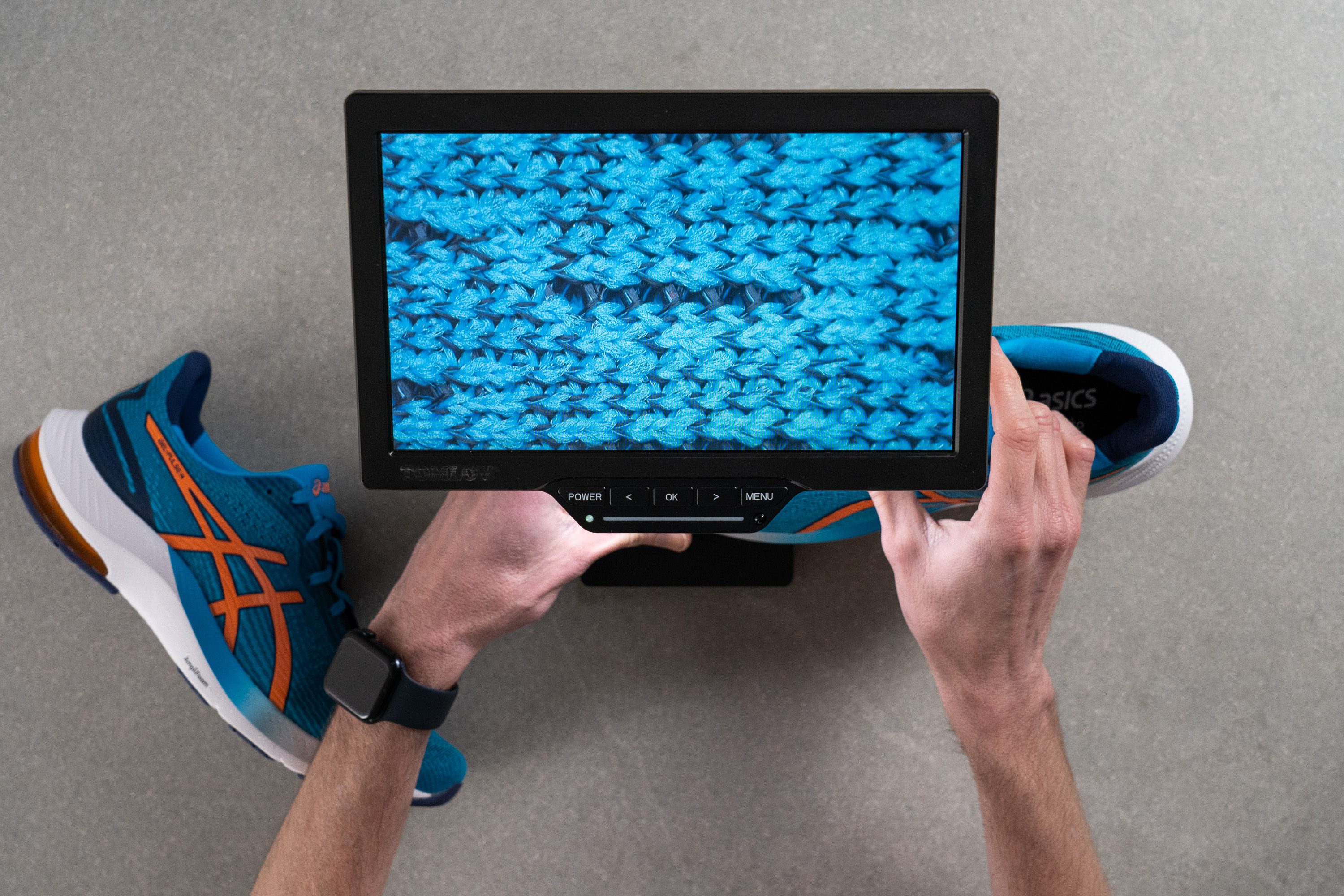
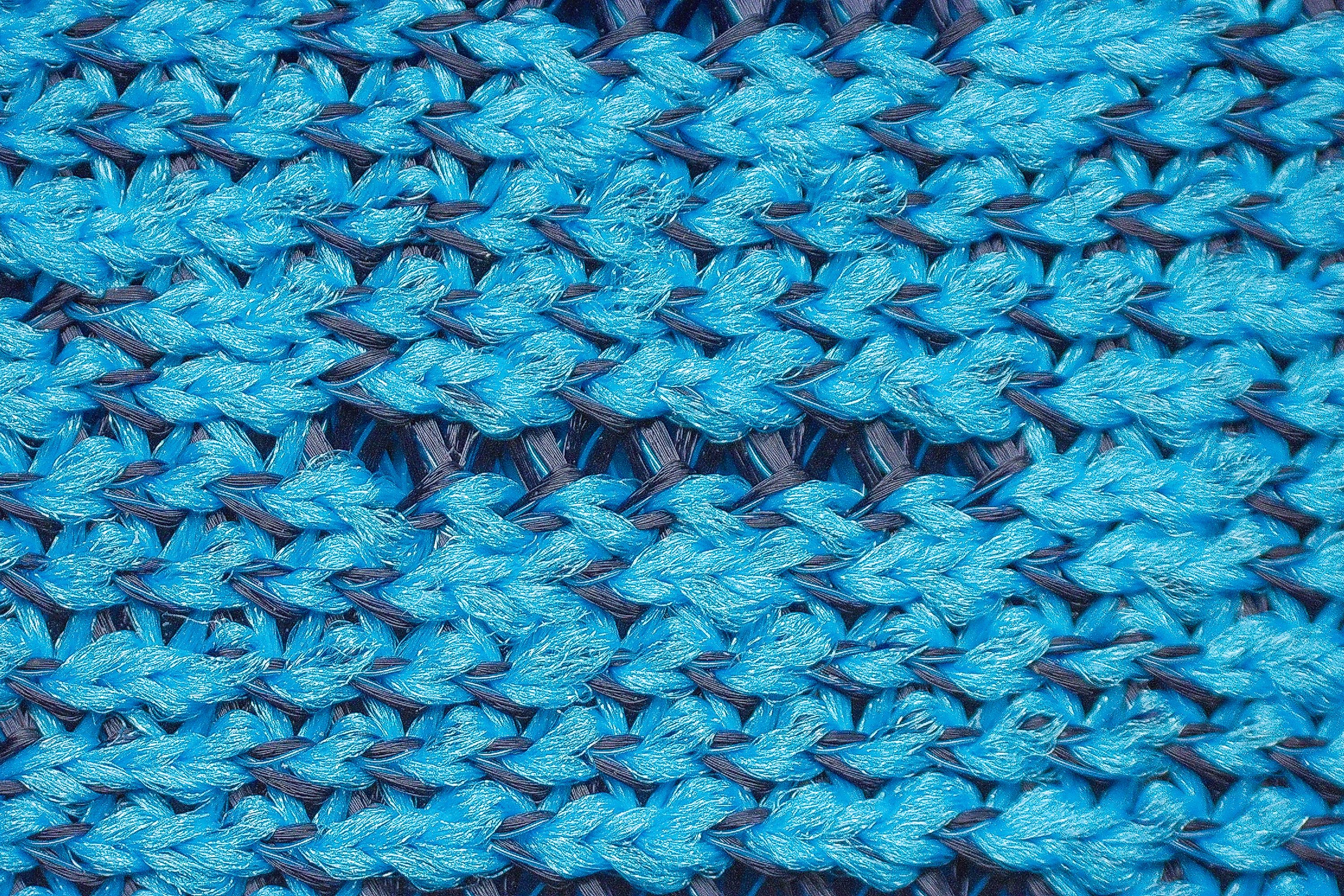
| Gel Pulse 14 | 3 |
| Average | 3.7 |
Stability
Lateral stability test
While the Gel Pulse 14 felt fairly steady on the ground as we tested it, we don't recommend it to those with severely overpronating strides. It just doesn't have the corrective stability features that promote a more neutral stride and help prevent injuries like the ASICS 1000 12 or the Hoka Gaviota 5.
Torsional rigidity
We faced an average amount of resistance as we bent a twisted the shoe in our hands, leading us to give it a middle-of-the-road torsional rigidity score of 3 out of 5 on our subjective scale. This presents us with a good mix of balance and comfort as the shoe is able to match the contortions of our foot to a certain extent while maintaining an adequately level base for stable landings.
| Gel Pulse 14 | 3 |
| Average | 3.5 |
Heel counter stiffness
The heel counter is quite stiff, earning a score of 4 out of 5 in our manual assessment. As such, the shoe does a good job of holding our heel in place while still having a bit of give to allow for some natural lateral movements of our foot. in this way, the Gel Pulse 14 keeps our rearfoot locked in without putting too much uncomfortable pressure on our ankles and tendons.
| Gel Pulse 14 | 4 |
| Average | 2.9 |
Midsole width - forefoot
Using our caliper, we measured the Gel Pulse 14's midsole to be 114 mm wide at the forefoot.
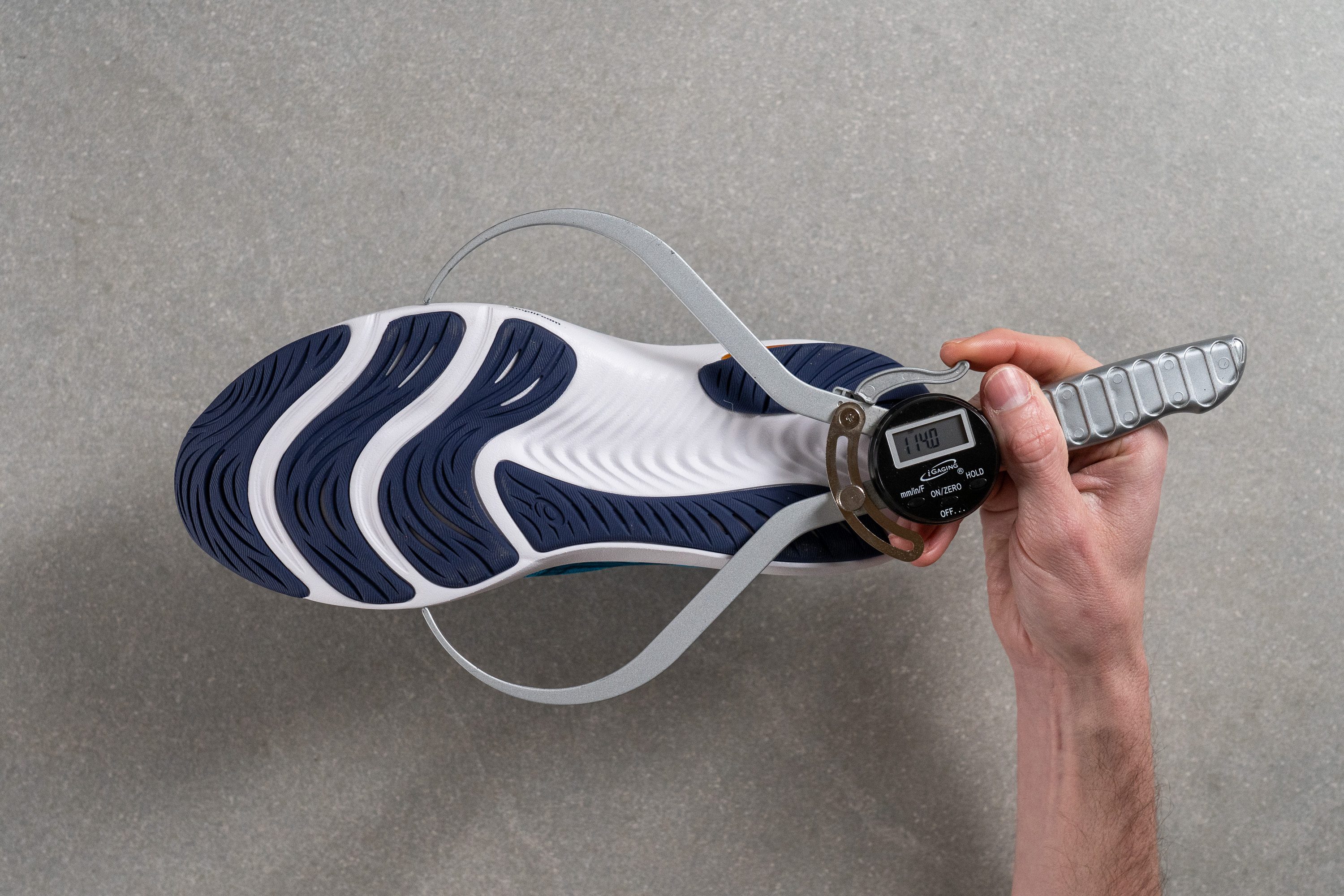
This is on par with our current lab average and gives us a broad enough platform that we felt stable from landing to toe-off without the shoe feeling overly blocky on corners.
| Gel Pulse 14 | 114.0 mm |
| Average | 114.4 mm |
Midsole width - heel
Back at the heel, the Gel Pulse 14's midsole is just shy of our average at 87.8 mm wide. This is still broad enough and means that heel-strikers should enjoy landings just as stable as their forefoot-striking counterparts.
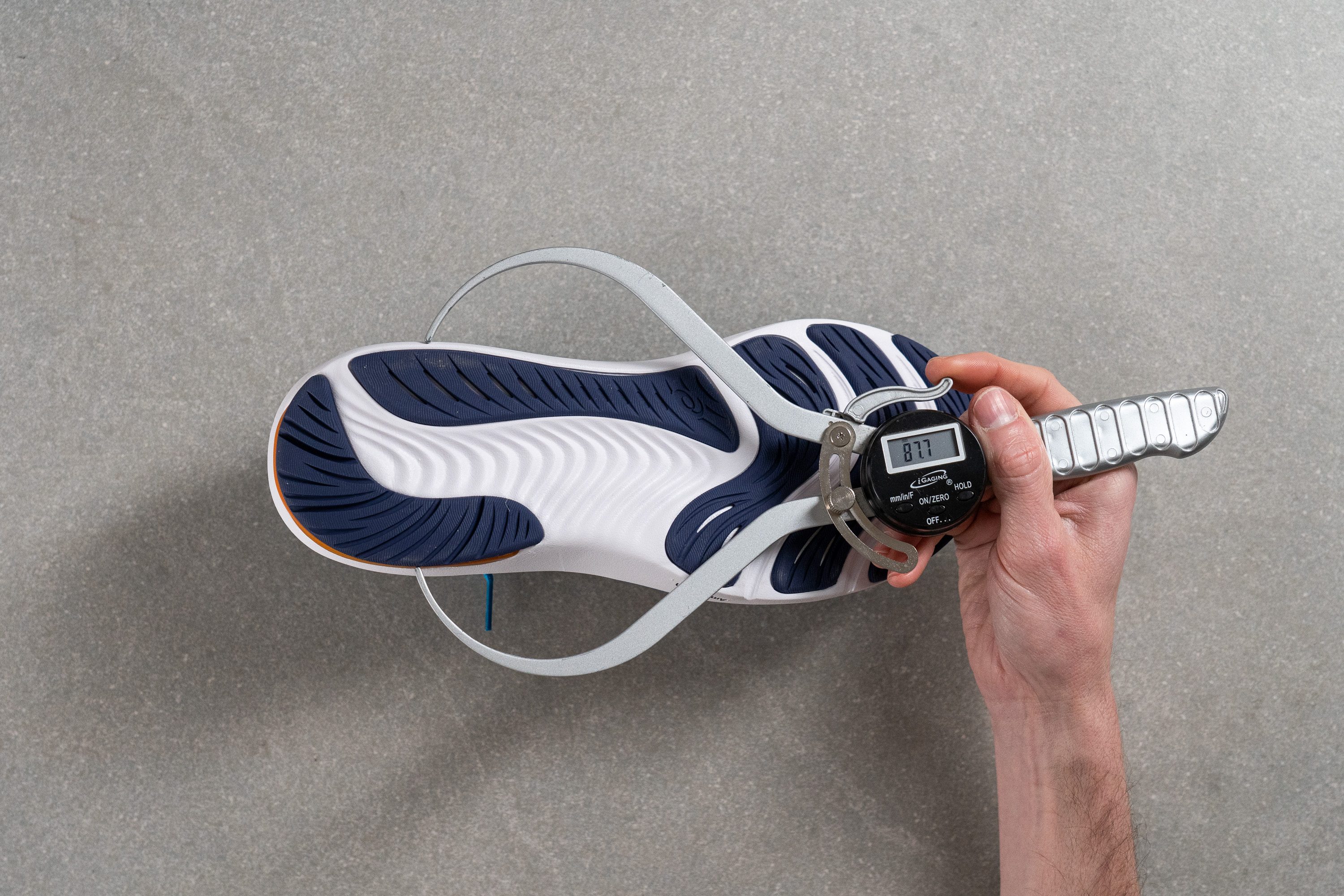
| Gel Pulse 14 | 87.8 mm |
| Average | 90.6 mm |
Durability
Toebox durability
To simulate extreme wear and tear, we subject the Gel Pulse 14 to several thrashings from our dreadful Dremel, starting with the toebox. We set the abrasive element, spinning at 5K RPM, onto it with 3.2N of force.
Within the short four seconds, our tool managed to successfully mince clean through the jacquard mesh and left quite a large crater in its wake. While this earns the Gel Pulse 14 a 1 out of 5 for toebox durability, this result isn't out of the ordinary for road shoes that aren't built for strength and shouldn't be an issue with normal use.
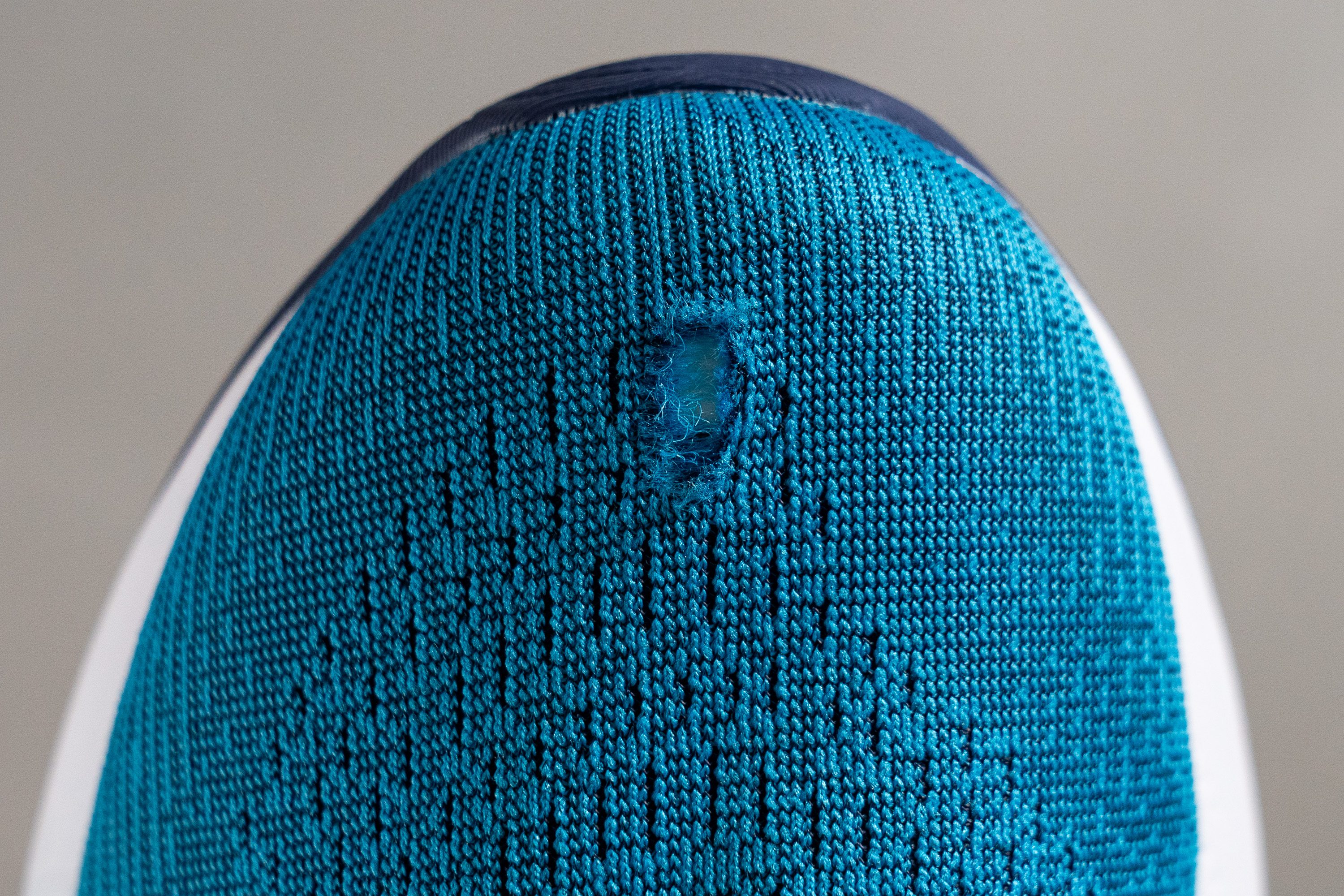
We do recommend steering clear of highly wooded areas in this shoe, however, as one unlucky snag could send the shoe to an early retirement.
| Gel Pulse 14 | 1 |
| Average | 2.6 |
Heel padding durability
Next, we turned our attention to the Gel Pulse 14's heel collar, and, much to our surprise, it held up extremely well to our Dremel.
After another four seconds of grinding, we were left with a barely noticeable scuff on the lining. This performance earns the Gel Pulse 14 a well-deserved 5 out of 5 in this assessment and means that no amount of heel rubs, even if going sockless, will compromise the shoe's rearfoot comfort and lockdown.
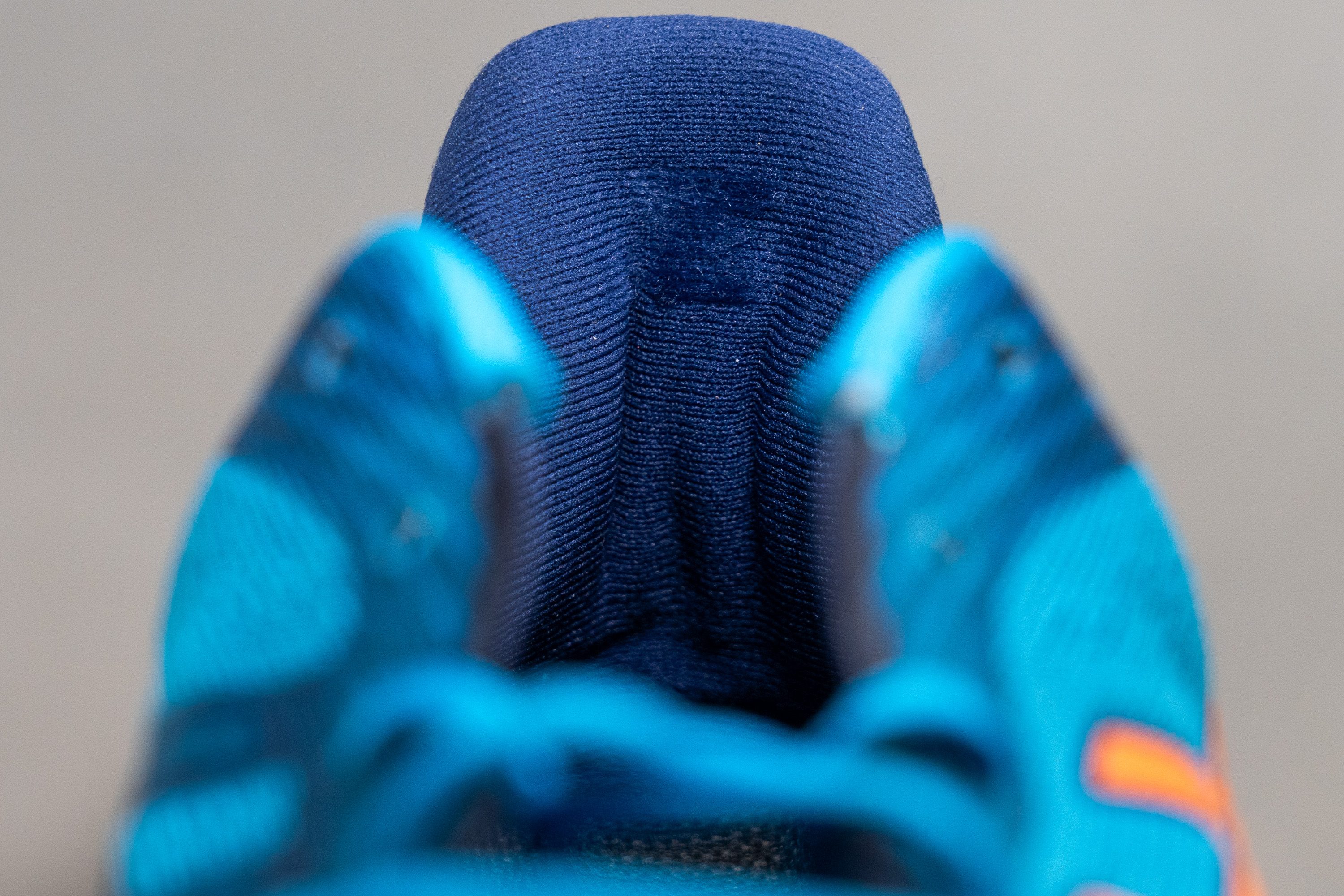
| Gel Pulse 14 | 5 |
| Average | 3.4 |
Outsole hardness
We pressed our durometer against the Gel Pulse 14's AHARPLUS outsole and got a harder-than-average reading of 86.5 HC. While a harder rubber usually indicates better durability, we've learned to reserve judgment until our Dremel makes its dreaded appearance.
| Gel Pulse 14 | 86.5 HC |
| Average | 79.2 HC |
Outsole durability
ASICS' AHARPLUS rubber compound is renowned not just for its excellent traction, but for reportedly having about 3x the abrasive resistance of conventional rubber. As such, we were surprised with the outsole's very average performance in our test.
After withstanding twenty-two seconds of our tool's abrasive element spinning at 10K RPM, we used a tire tread gauge to measure the indentation left behind to be 0.9 mm deep. This puts the Gel Pulse 14's outsole on par with our current lab average which isn't bad and means the shoe should last a good 400 to 500 miles of use. We just expected more from the AHARPLUS rubber compound.
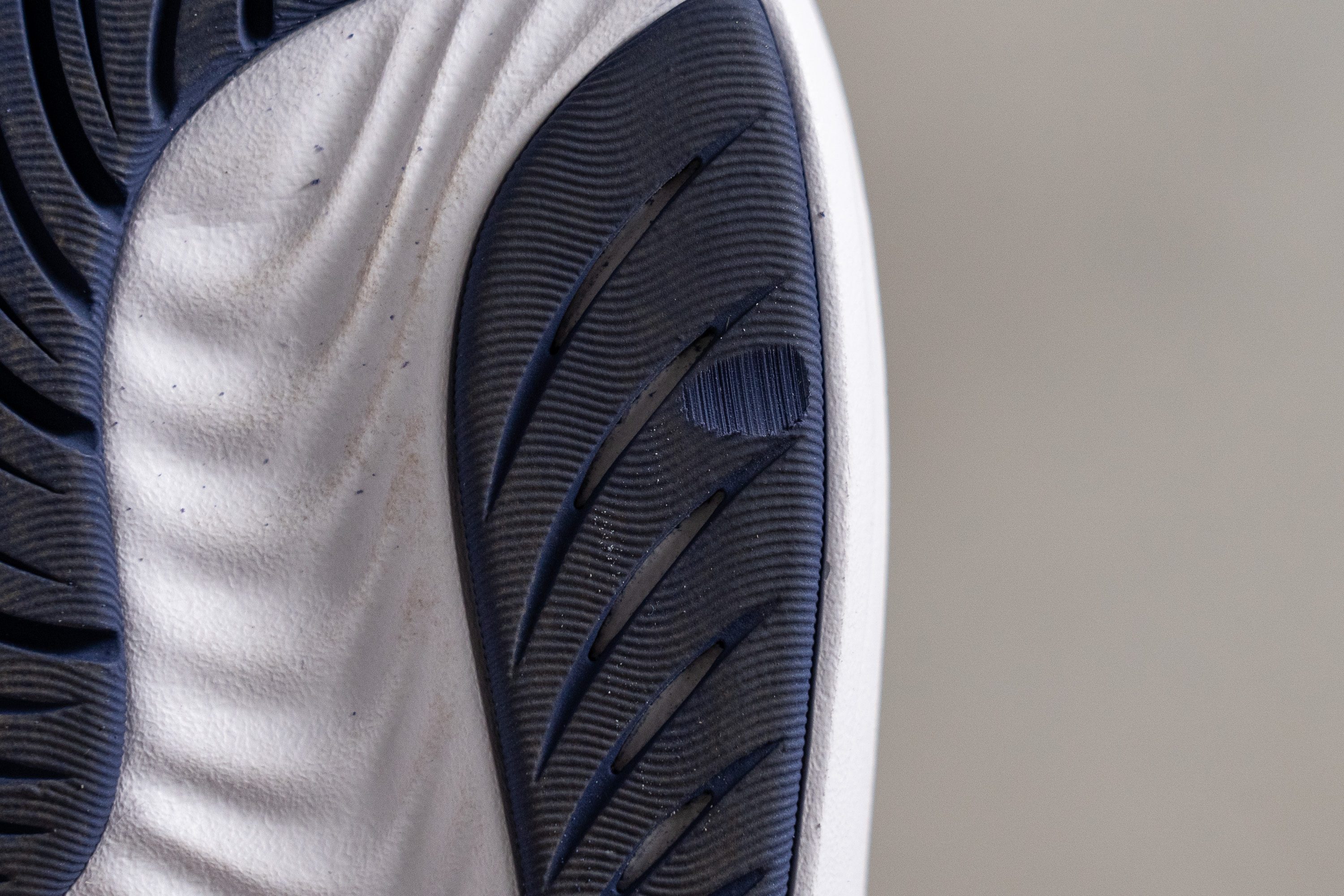
| Gel Pulse 14 | 0.9 mm |
| Average | 1.1 mm |
Outsole thickness
The Gel Pulse 14's outsole is significantly thicker than average at 4.5 mm thick according to our caliper measurements. While this does give us some more material underfoot to wear through which is good in terms of the shoe's longevity, it doesn't do the Gel Pulse 14 any favors in the weight department.
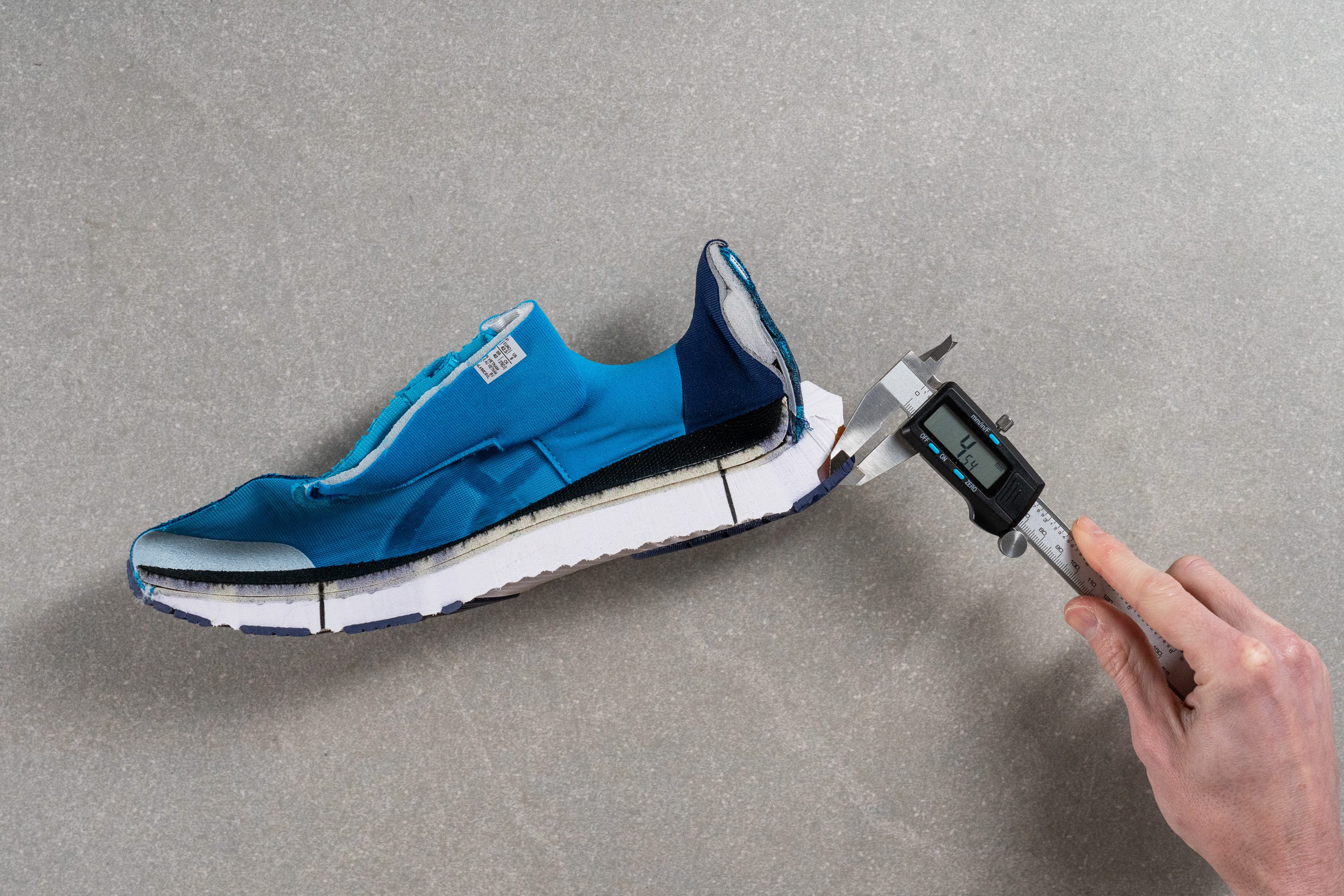
| Gel Pulse 14 | 4.5 mm |
| Average | 3.2 mm |
Misc
Insole thickness
Using our caliper, we measured the Gel Pulse 14's Ortholite insole to be 5 mm thick which is within the average range for road shoes. This leaves us with a nice and cushy footbed that also provides a fair amount of arch support during our test runs.
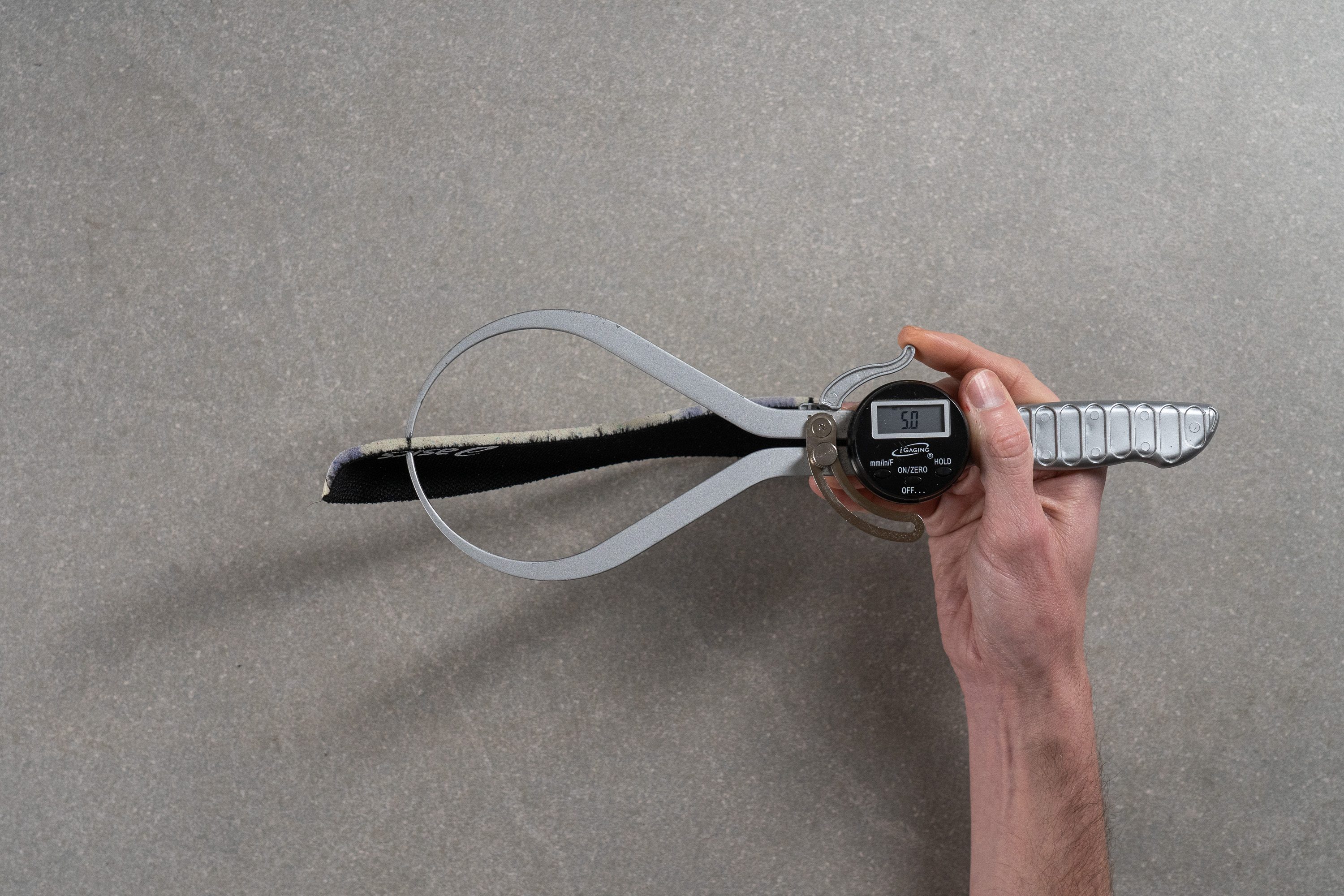
| Gel Pulse 14 | 5.0 mm |
| Average | 4.5 mm |
Removable insole
The Gel Pulse 14's insole is easy to remove so replacing it with an aftermarket alternative or a custom orthotic is possible if necessary.
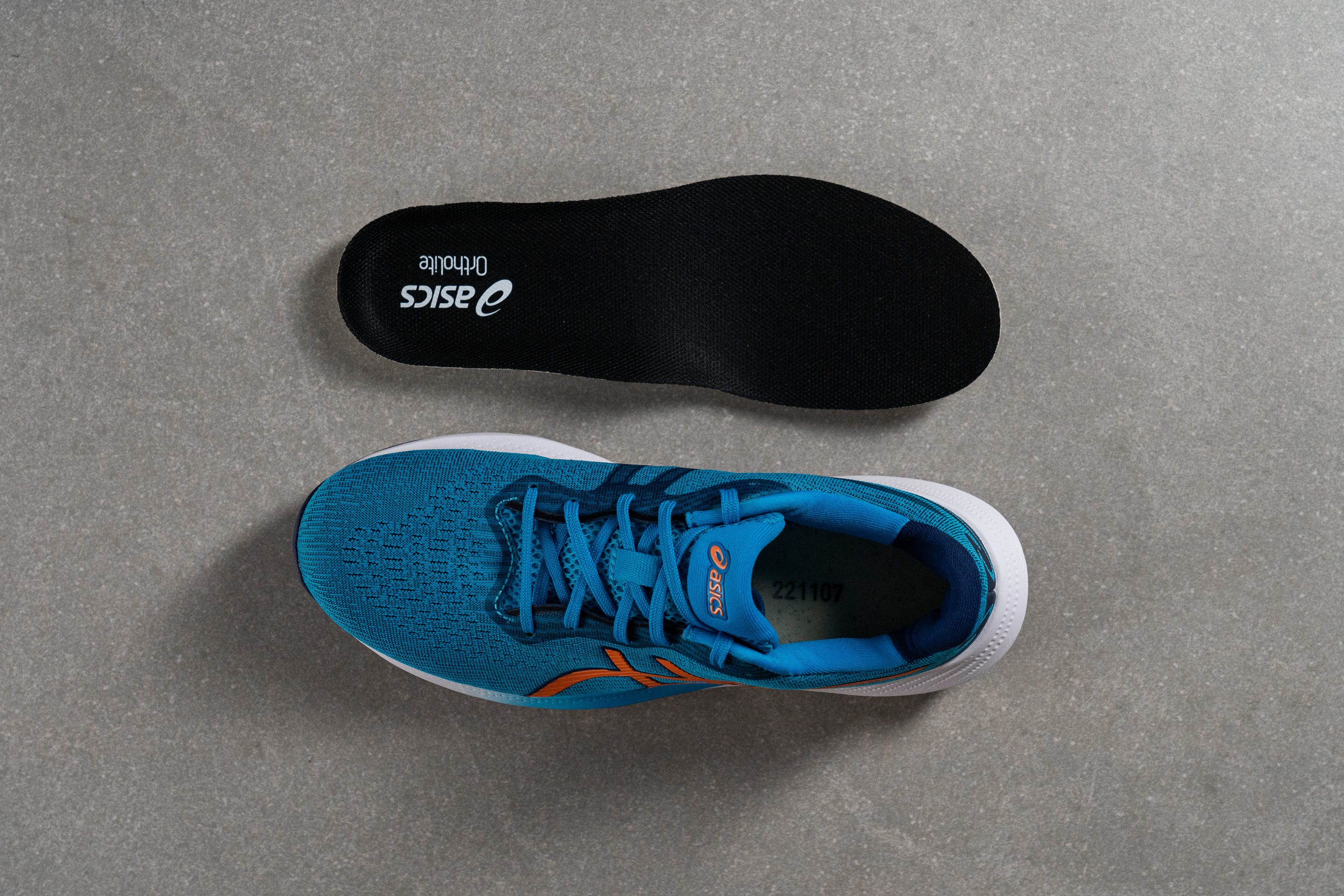
| Gel Pulse 14 | Yes |
Midsole softness in cold (%)
For what it lacks in responsiveness, the AMPLIFOAM midsole makes up for it with an incredibly consistent performance in our freezer test. After chilling with our tubs of ice cream for twenty minutes, we took another durometer reading of the midsole and found that it only got 12.4% firmer with a result of 25.3 HA. This means that the Gel Pulse 14 should still provide a balanced level of cushioning that is forgiving on the foot no matter how frigid it gets out there.
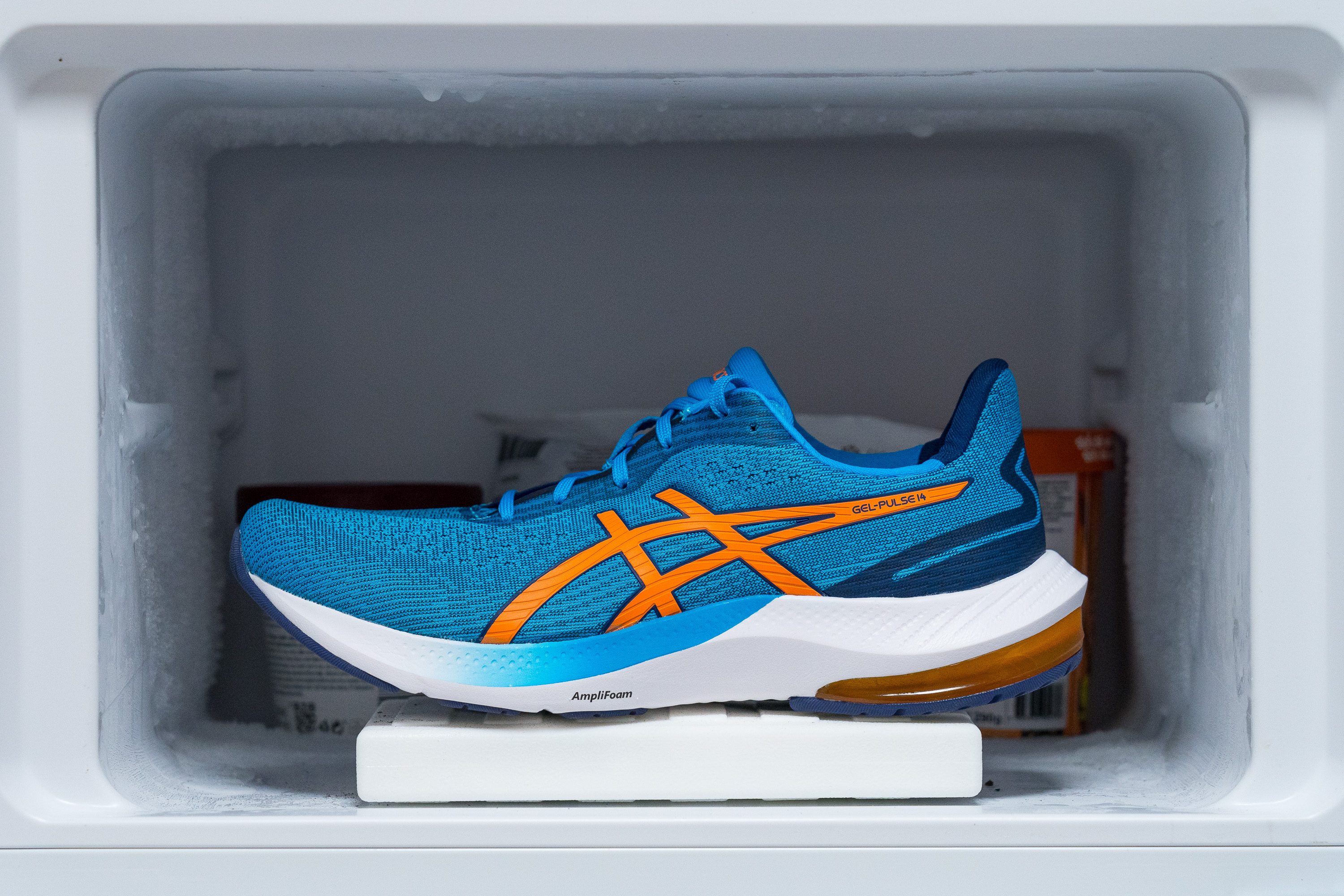
| Gel Pulse 14 | 12% |
| Average | 24% |
Reflective elements
With no reflective elements to be found on the shoe, we don't recommend running along dimly lit roads at night without any additional high-vis gear.
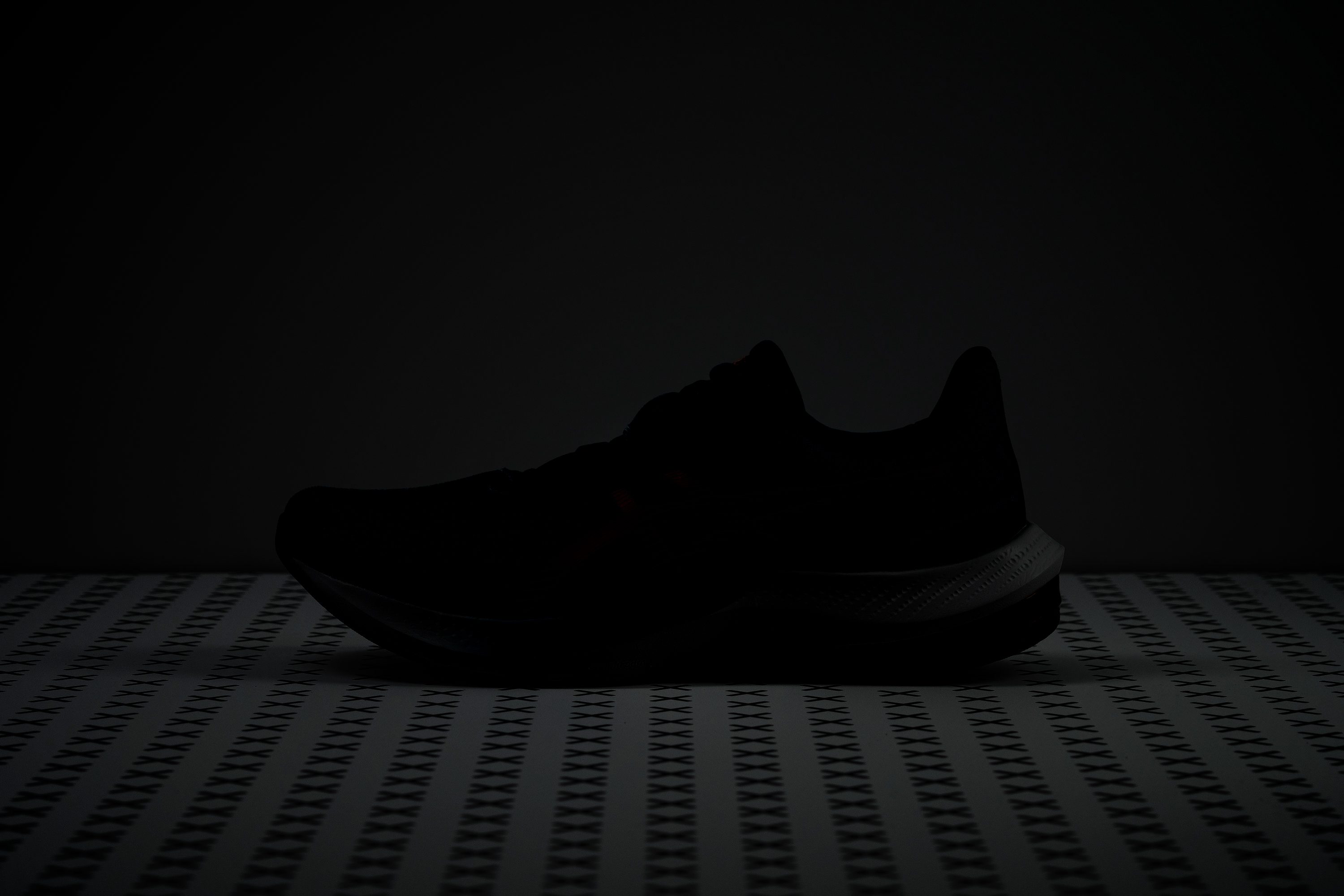
| Gel Pulse 14 | No |
Tongue padding
We measured the Gel Pulse 14's tongue to be 5 mm thick which is right around the current lab average. This feels pretty comfy across our instep and does a pretty good job of protecting us from lace bite during testing.
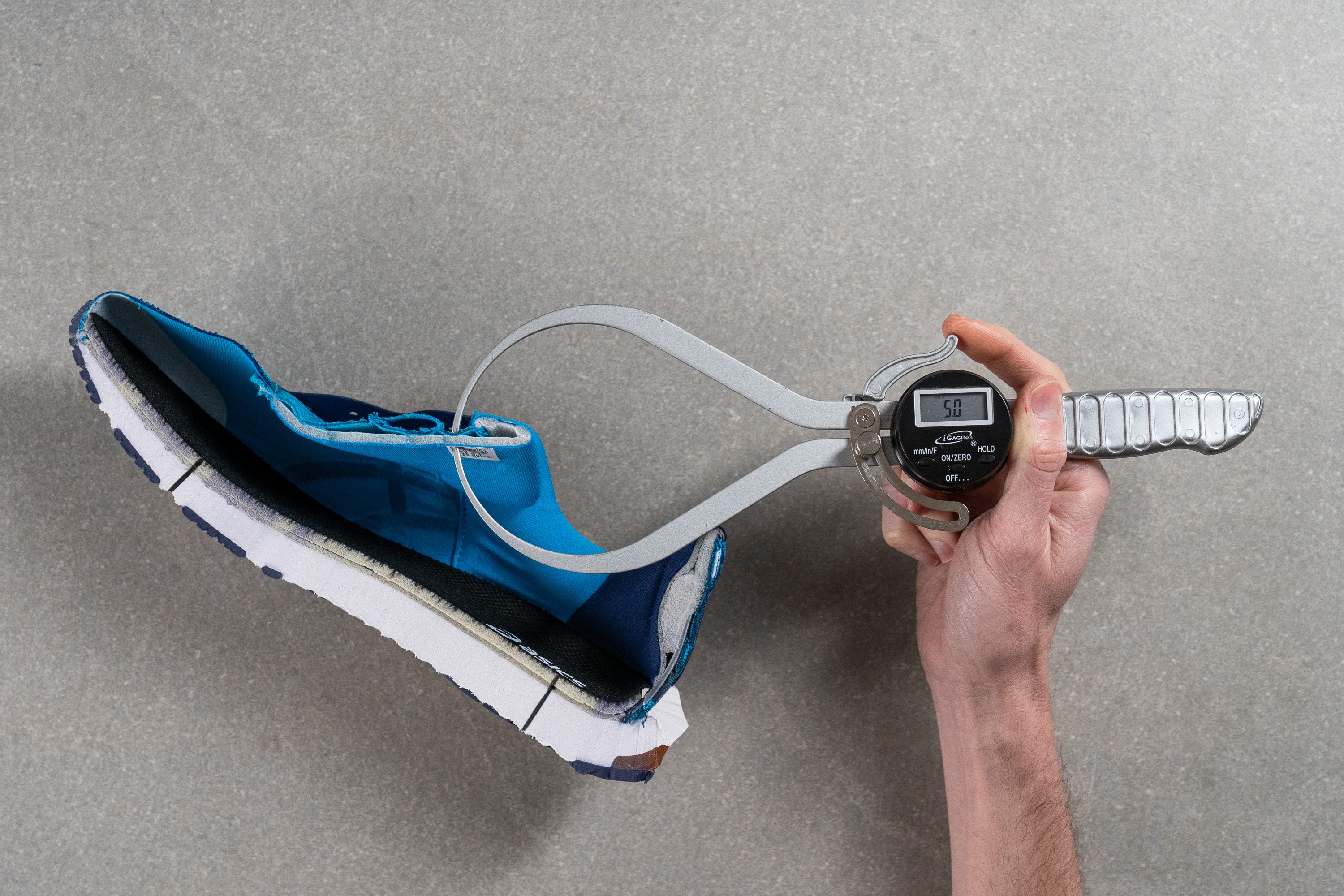
| Gel Pulse 14 | 5.0 mm |
| Average | 5.7 mm |
Tongue: gusset type
The tongue isn't gusseted, though we didn't really face any issues with it slipping to the side while we tested the Gel Pulse 14.
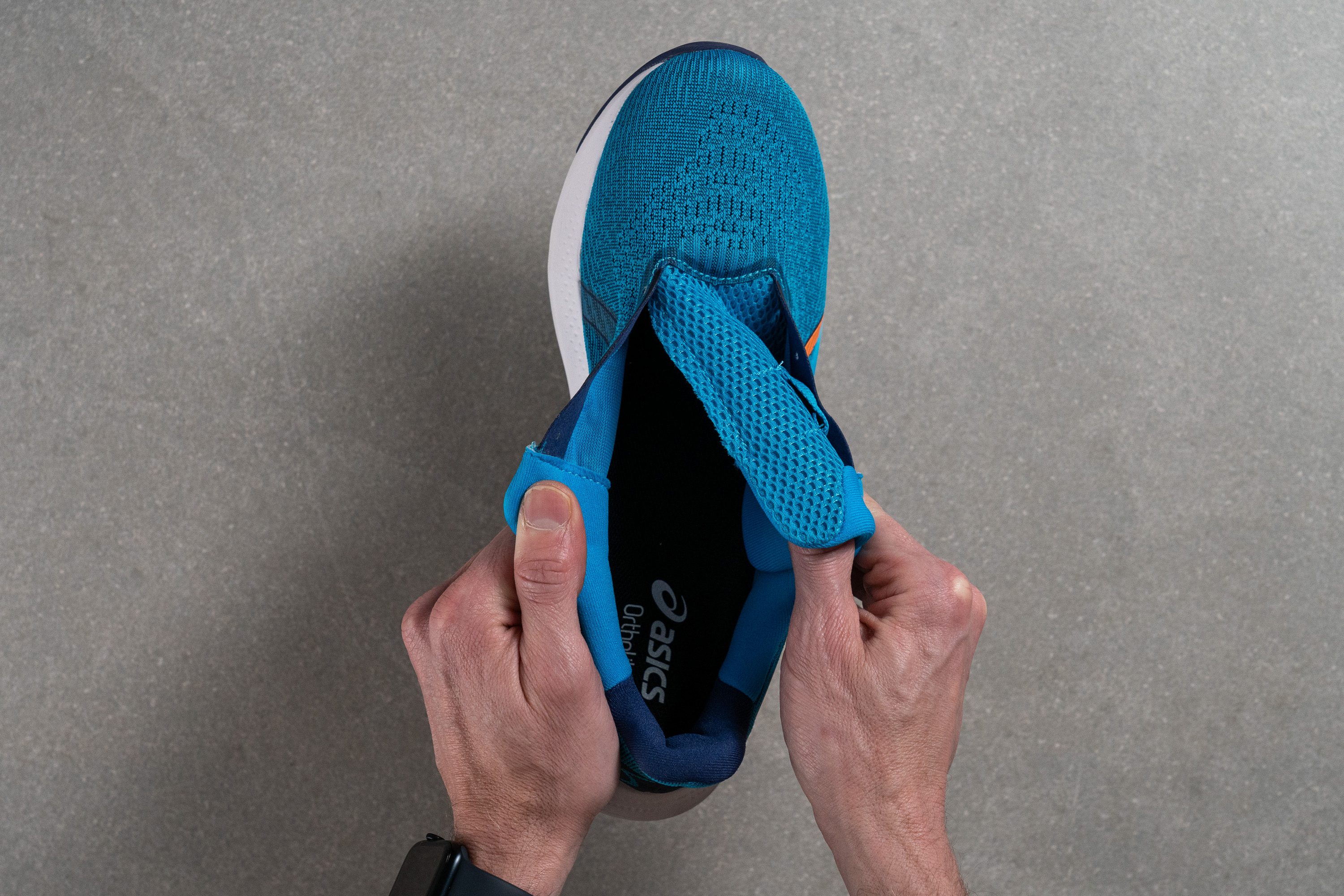
| Gel Pulse 14 | None |
Heel tab
The shoe's heel collar extends upwards to form a little tab that not only makes sliding the shoe on a little easier but looks pretty snazzy too.
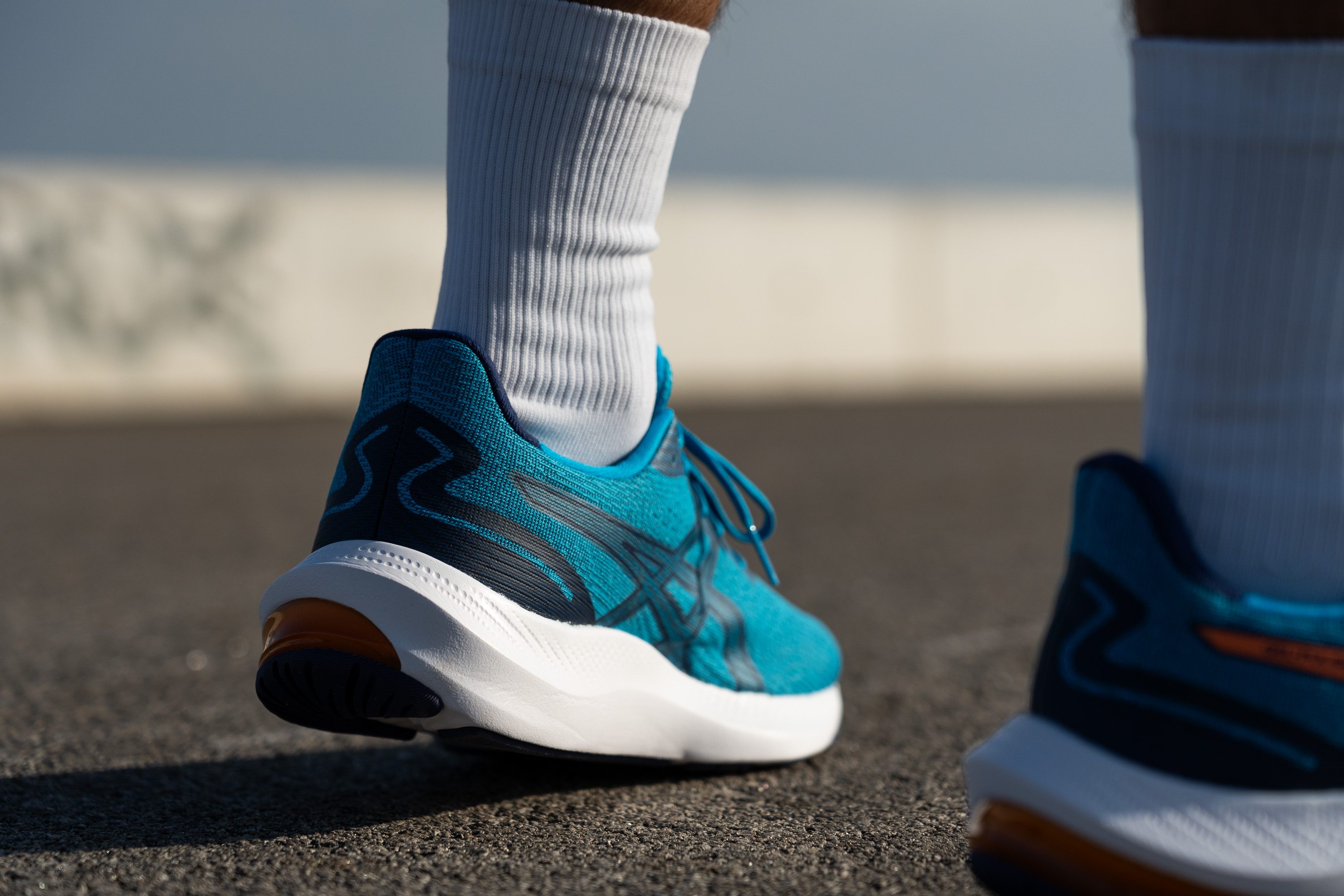
| Gel Pulse 14 | Extended heel collar |

